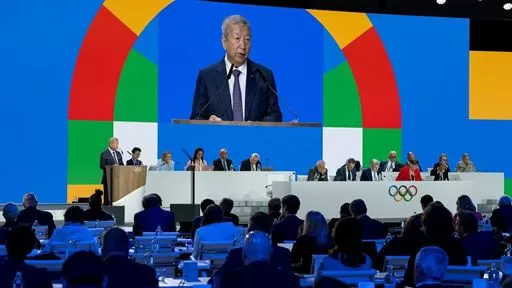On March 19, 2025, the International Olympic Committee (IOC) reached a historic milestone in its efforts to ensure a sustainable future for the Olympic Games. The implementation of Olympic Agenda 2020, a series of reforms aimed at modernizing the Olympic Movement, has resulted in a solid long-term financial base for the IOC. These reforms have not only brought financial stability to the IOC, but they have also fostered a more commercially viable and socially responsible organization. Let us delve deeper into the impact of Olympic Agenda 2020 and how it has transformed the IOC into a beacon of sustainability and progress.
One of the major objectives of Olympic Agenda 2020 was to reduce the financial burden on host cities. The exorbitant costs associated with hosting the Olympic Games had become a major deterrent for potential host cities. With the new reforms in place, the IOC has successfully lowered the overall cost of hosting the Games by 15%. This has been achieved through various measures, such as promoting the use of existing facilities and encouraging the concept of sustainability in all aspects of the Games. As a result, more cities are now willing to bid for the Olympic Games, knowing that it is a financially viable option.
The financial sustainability of the IOC has also been strengthened through the diversification of its revenue streams. Before the implementation of Olympic Agenda 2020, the IOC was heavily reliant on broadcast and sponsorship revenues. However, with the reforms, the IOC has expanded its revenue sources through initiatives such as the creation of the Olympic Channel and the development of digital platforms. This has not only increased the IOC’s revenue but has also made the Games more accessible to a wider audience, thereby achieving the Olympic Movement’s goal of inclusivity.
Moreover, Olympic Agenda 2020 has brought about a significant change in the bidding process for the Olympic Games. The process has become more transparent, and the emphasis is now on sustainability and legacy rather than on extravagant plans. This has not only saved costs but has also ensured that the host cities are left with long-lasting benefits after the Games are over. This is in line with the IOC’s commitment to being socially responsible and leaving a positive impact on the environment and the local community.
In addition to financial stability, the reforms of Olympic Agenda 2020 have also placed a strong emphasis on good governance and ethical practices within the IOC. This has resulted in a more transparent and accountable organization, which is crucial for maintaining the trust of stakeholders and fans alike. The IOC now has a robust system in place to prevent any instances of corruption or malpractice, and this has enhanced the credibility of the organization.
Another significant aspect of Olympic Agenda 2020 is its focus on sustainability. With the threat of climate change looming over the world, the IOC has taken proactive measures to minimize the environmental impact of the Olympic Games. The use of renewable energy sources, sustainable construction practices, and reduced carbon emissions are just some of the measures taken to make the Games more environmentally friendly. These efforts align with the United Nations’ Sustainable Development Goals, and the IOC has been praised for its proactive approach in addressing global issues.
Furthermore, Olympic Agenda 2020 has also placed a strong emphasis on the legacy of the Olympic Games. It is no longer just about hosting a successful event, but about creating a lasting impact on the host city and its citizens. The IOC has worked closely with host cities to ensure that the Games leave behind a positive legacy, whether it is through the development of infrastructure, promoting sports and healthy living, or leaving a positive social and economic impact.
In conclusion, the implementation of Olympic Agenda 2020 has brought about a significant transformation in the IOC. The reforms have not only provided a solid financial base for the organization but have also made it more sustainable, socially responsible, and transparent. The IOC has set an example for other sporting organizations to follow, showcasing that progress and sustainability can go hand in hand. With the success of Olympic Agenda 2020, the potential for future Olympic Games is limitless, and we can look forward to a brighter and more sustainable future for the Olympic Movement.



